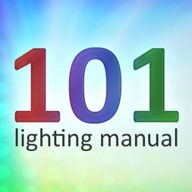neilric99
Full time elf
There's been quite a few comments recently about the difference between Lightfactory and Madrix and dont they do the same thing.
The facebook group page 'extreme pixels and leds' has a thread on this which I want to repost what Sepp posted about it.
The facebook group page 'extreme pixels and leds' has a thread on this which I want to repost what Sepp posted about it.
- Sepp Spenlinhauer I would say the core difference with madrix is much more control. Madrix lets you paint an entire canvas, LF lets me setup specific matrix layouts and then control them globally or individually, and also in layers. (I do admit that I have limited Madrix experience, but I have demoed the software multiple times).
We used LF to run our show, 114 universes. We shopped and shopped products. LF is a hybrid between a typical "theatrical" console and media server. It has some very powerful functionality. However there is a learning curve. It has so many features that effects can be created in multiple ways. - Gregory Young Sepp, if I understand you correctly Madrix has less of a learning curve than LF? I have played with Madrix, and it does seem straight forward.. I have not tried LF yet..
- Sepp Spenlinhauer No, I would say the otherway round, but they are not, as stated, apples to apples. I would say that LF is 10x more powerful than madrix, but the interface is totally different. I think of madrix as a Matrix Image engine for LIVE control pixel grids, or a Light DJ. Not really designed to playback a "SHOW", although apparently you can do this, it seems that it is really designed for "throw-away" visual imagary played back to music. LF is designed for Cued playback of recorded looks - Although it was designed for ON THE FLY running of concerts and shows, do so requires a bunch of setup as any theatrical style console to get a foundation in place. "out of the box" LF is a blank slate, Madrix has 'canned" effects, so you get running faster, you are just limited to pixel matrix. IN LF you can create a matrix out of incandescent fixtures AND RGB fixtures in the same matrix. And at some other point control both fixtures in a more traditional cue list.
You can also create layers of effects that talk to the same pixels, so you could create a blue fade in one chase and red fade in a another chase and they will both talk to the same fixtures, so you get magenta when they cross over... Not sure how you do that in Madrix.

